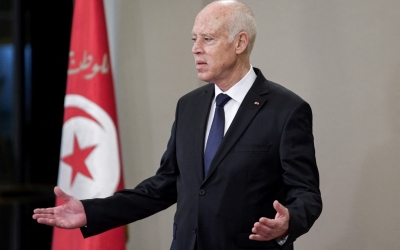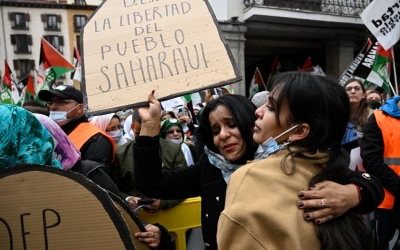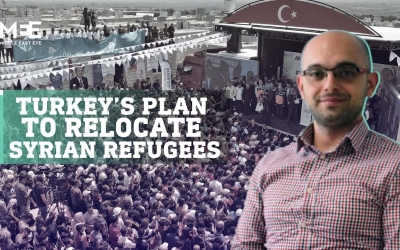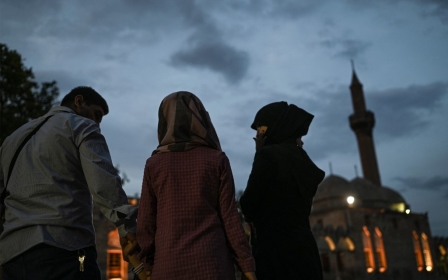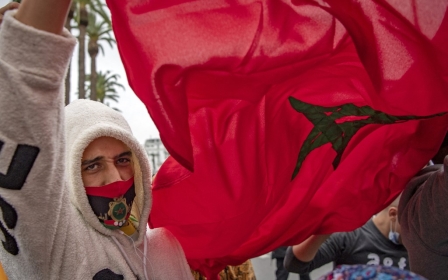Arabic press review: Tunisia's Saied 'to dismiss 400 more judges'
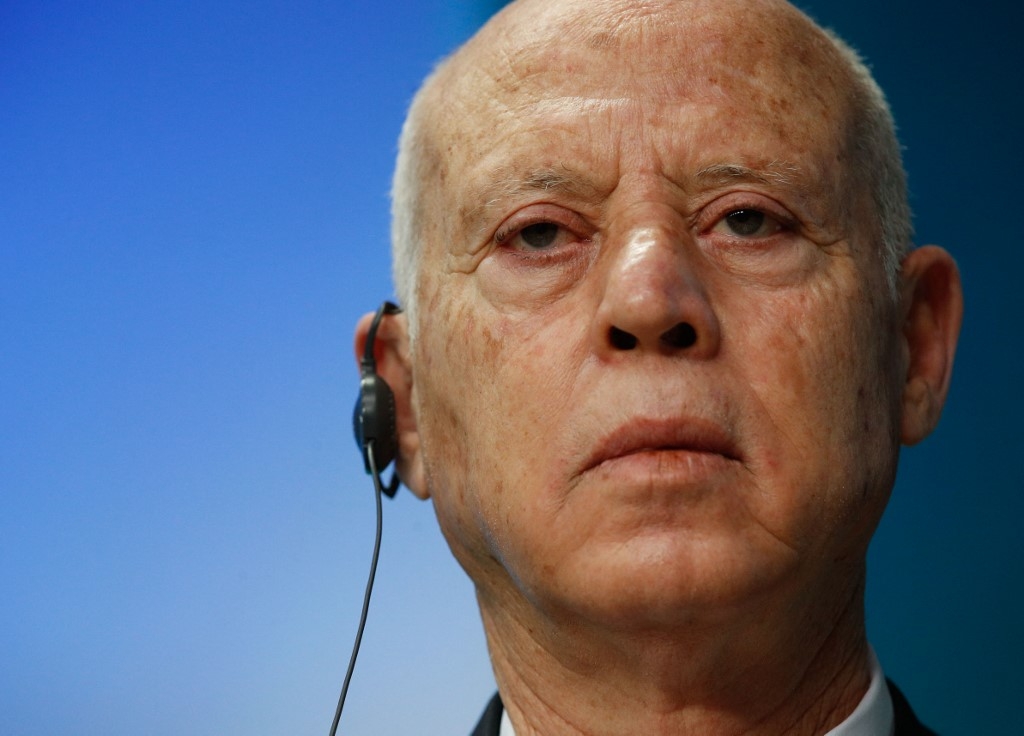
Kaid Saied 'to sack 400 judges' in latest purge
Tunisian President Kais Saied is preparing to dismiss more than 400 judges, a judicial source said, according to Arabi21 news website on Saturday.
Tunisian judge Mourad Massoudi revealed that the sackings will take place after the 25 July referendum on the new constitution, which will also mark one year since Saied began a series of unilateral moves to seize executive powers that his opponents call a coup.
Massoudi, who is the head of the Young Magistrates Association, added: "The judges are determined to defend their just cause and protect the judiciary. The executive authority is in a critical situation and has no solution but to sit down at the negotiating table."
This revelation comes in conjunction with a strike that judges have been observing for three weeks to protest against Saied's dismissal of 57 judges earlier this month.
On 1 June, the professor-turned-politician cited accusations against the dismissed judges that included obstructing terrorism-related investigations, financial corruption, “moral corruption,” adultery, and participation in “alcohol-fuelled parties”.
Among the judges fired was Youssef Bouzakher, the former head of the Supreme Judicial Council (CSM), a body that ensured judicial independence after the 2010 revolution, which was dissolved by Saied in February.
In previous statements to Arabi21, Massoudi said no charges were brought against the dismissed judges, adding that they were sacked so that Saied can “exert pressure on other judges, achieve his interests and take revenge against his political opponents”.
Algerian travel agencies ordered to halt Spain tours
The Algerian Ministry of Tourism ordered tourism agencies to immediately stop dealing with companies in Spain as the diplomatic crisis between the two countries deepens, Al-Quds Al-Arabi reported on Monday.
The decision comes as part of implementing the suspension of a decades-old cooperation treaty with Spain earlier this month, the ministry said.
Effectively, the ban means travel agencies cannot organise tours and flights to Spain, which is a popular holiday destination for Algerians, with many owning real estate there, the London-based daily said.
On 8 June, Algeria scrapped the Treaty of Friendship, Good Neighbourliness and Cooperation with Spain, signed in 2002, amid growing frustration in Algiers against Madrid's policies.
Tensions between the two countries have been brewing since March, when Spain announced its support for Morocco’s autonomy plan for Western Sahara in an abrupt diplomatic U-turn.
The issue of the former Spanish colony, classified as a "non-self-governing territory" by the United Nations, is the source of a decades'-long conflict between Morocco and the Sahrawi independence movement, the Polisario Front, which broke off diplomatic relations with Rabat in August 2021.
Western Sahara is currently 80 percent controlled by Morocco which regards the area - which is rich in phosphates and adjacent to bountiful Atlantic fishing waters - as an integral part of their own territory.
Meanwhile, Algeria, which shares a border with Western Sahara, has long hosted and supported the Polisario Front.
Thousands of Syrian refugees return from Turkey
Syrian refugees have been returning to their war-ravaged country from Turkey in increasing numbers, a former worker at the Turkish General Directorate of Migration Management said on Tuesday, according to the Al-Araby Al-Jadeed.
Shaukat Aksoy said the notable returns to opposition-held areas in Syria's northwest come amid a push from Turkish authorities to encourage the “voluntary return” of refugees.
As part of the plan, refugees returning to Syria are guaranteed two visits to Turkey a year, a place of residence and sometimes granted small loans, Al-Araby Al-Jadeed said.
"The difficult living conditions in Turkey after the hike in rents and goods prices were additional reasons supporting the idea of voluntary return,” Aksoy said.
“We also cannot forget about the factor of escalating hate and racism campaigns on the Turkish street against refugees.”
Philippe Leclerc, the representative of the United Nations High Commissioner for Refugees in Turkey, said on Tuesday that about 8,000 Syrian refugees return to their country from Turkey every week.
"They are returning even though the conditions in Syria are not appropriate due to the deteriorating political, social and economic conditions," Locker said.
There are no official figures for Syrian refugees who leave Turkey and return to their country, but Aksoy said the number has exceeded 500,000 Syrian refugees.
He expects an increase in voluntary returns ahead of Turkish elections next summer, adding that the number might exceed one million Syrians.
Middle East Eye propose une couverture et une analyse indépendantes et incomparables du Moyen-Orient, de l’Afrique du Nord et d’autres régions du monde. Pour en savoir plus sur la reprise de ce contenu et les frais qui s’appliquent, veuillez remplir ce formulaire [en anglais]. Pour en savoir plus sur MEE, cliquez ici [en anglais].


